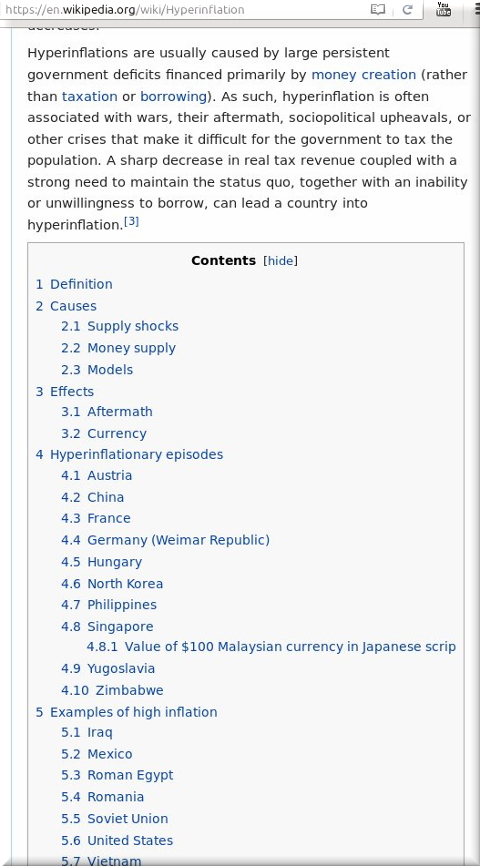
 Reference: Hyperinflation
Reference: Hyperinflation
WE OFTEN make the rather broad claim that Battistelli's terrible regime, which is clueless about patent quality (no scientists in charge. i.e. at the top, unlike before), artificially increases EPO patent numbers by reducing the quality, e.g. by pressuring to grant faster (without sufficient prior art search) just like the USPTO. Bogus patents hurt the most the "small guy" (or gal), who hasn't the means/time/expertise by which to appeal/object/fight a hostile patent. That's putting aside Battistelli's vicious crushing of the Boards of Appeal, which would mean fewer reassessments of patents erroneously granted by examiners. To borrow India's example of software patents and other controversial kinds of patents, consider today's new article from the Indian media:
Modi’s New Intellectual Property Rights Policy Will Only Benefit Players with Deep Pockets
In November 2014, five national governments wrote to the Department of Industrial Policy and Promotion (DIPP) to inform the policy-making process of India’s first national intellectual property rights policy (IPR policy). The DIPP received 300 submissions from various other stakeholders, including NGOs and civil society, multinational companies, businesses and trade associations, cutting across various sectors. The policy-making process itself was marred by bizarre, unfair and unexplained steps such as the sudden disbanding of the first think tank put in charge for producing a draft policy, an opaque and long-drawn process of releasing a first draft, the leak of a near-complete final draft and no publication of responses (yet) of the 300 odd submissions that were made by stakeholders. Finally, the DIPP released the policy last week.
Despite the long and extensive drafting process, the policy is tilted in favour of right-holders, and places undue reliance on IPRs to stimulate innovation and growth. It obviously claims otherwise, but there are some fundamental flaws in the policy’s premise which render the DIPP’s claims meaningless. Delving briefly into the subject of IPRs, it is a matter of principle that a balanced intellectual property (IP) regime, i.e. a model that balances rights with adequate limitations/exceptions, contributes optimally to the holistic development and growth of the nation. Limitations or exceptions are flexibilities in the law, which cut down absolute monopoly conferred by IPRs, and ensure that use and sharing of knowledge for purposes such as research, education and access to medicines are not overridden by IP rightholders’ claims. The Trade-Related Aspects of Intellectual Property Rights agreement (TRIPS), which is the largest international agreement governing countries’ IPR regimes also promotes the use of these flexibilities to build balanced regimes. The policy does occasionally state its commitment to the TRIPS agreement and the Doha Declaration, but does not commit or spell out any new concrete steps. Thus, it fails to show any seriousness about upholding and promoting a ‘balanced’ regime – in stark comparison to the detailed and surgical manner in which it aims to raise awareness about IPRs and commercialise them.
Unfortunately for the policy, a myopic rationale captures the ambition of the document. The policy document states that, “The rationale… lies in the need to create awareness about the importance of IPRs as a marketable financial asset and economic tool.” As such, the policy fails to recognise the philosophy of welfare and balance embedded in IPRs: to ensure innovation, social, scientific and cultural progress and furtherance of access to knowledge. In all fairness, while the document pays a salutary tribute to objectives such as “achieve economic growth and socio-cultural development, while protecting public interest; also of advancing science and technology, arts and culture, traditional knowledge and biodiversity, transforming knowledge-owned into knowledge shared,” it never rises above its treatment of IPR as a tool to solely serve the interests of rights-holders.
At the end of January 2016 the EPO held Oral Proceedings in respect of an Opposition by Nestec S.A. & Nespresso France against the grant of EP2312978 in the name of ECC. At the end of the proceedings the opposition was dismissed and the patent maintained as granted. An appeal against that decision has already been filed by the opponents.
The ECC patent in question does not directly protect ECC’s innovative product (they have other patents for that), or even prevent a third party from producing a competing product, but it is intended to prevent particular modifications to Nespresso machines that would render them incompatible with the ECC product.
--Ronald Reagan